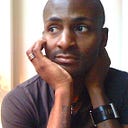So then why did you mention racism?
Here's what you asked me to "think about":
"Because when a white professor loses their job over gross misconduct, nobody feels the need to initiate a struggle session about whether their misconduct is “the relevant question.”"
My point is that when a white person is fired, we all recognise that the relevant question is whether they did something that merits their firing. Sure, there may be questions about whether the person accusing them dislikes them for one of countless possible reasons, but they're secondary. This is how we treat adults.
But Kendi, and many others, argue that when a black person is fired, the relevant question is whether the people who are criticising her might be racist. This is how he suggests we treat black people and only black people.
And as, in most cases, it will be unprovable that somebody is racist, and as, even if they are, the relevant question is still whether their criticisms are valid, yes, this inevitably leads to an infantilising double standard for black people.
At least, unless you have some genius way we can draw a line between cases where it's clearly not racism and cases where it clearly is. Kendi certainly hasn't figured out where that line is.
As for Gay's testimony, I'm not interested in arguing the merits one way or the other. The key point here is that a white woman was fired for saying more or less exactly what Gay said. Is this "reverse racism"? Why view these cases differently?
